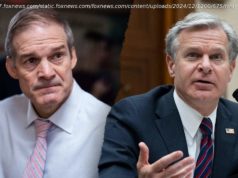US President Donald Trump has once again sparked a furor of constitutional law studies by politicos by claiming he can end birthright citizenship in the US all by himself. A research fellow with a US immigration think tank said his real purpose was to “to force Congress’ hand to act.”
On Monday, Axios leaked part of an interview with Trump, the full recording of which will air on HBO Sunday, in which he indicated his intention to do away with birthright citizenship in the US by way of executive order.
«It was always told to me that you needed a constitutional amendment. Guess what? You don’t,» the president told Axios’ Jonathan Swan in an interview in the Oval Office. «Number one. Number one you don’t need that. Number two, you could definitely do it with an act of Congress. Now, they’re saying I can do it just with an executive order.»
The video sparked an uproar, with criticism coming from all sides, including the president’s own party. Representative Paul Ryan (R-WI), who leads the majority conservative faction in the House of Representatives, said the president was wrong and the issue could only be settled by Congress.
Radio Sputnik’s Fault Lines spoke with Andrew Arthur, resident fellow in Law and Policy for the Center for Immigration Studies, about the history of the legal debate around birthright citizenship and why Trump is picking this fight. Arthur previously served within the former Immigration and Naturalization Service.
Interview begins at [19:00]
The relevant passage from that amendment reads: «All persons born or naturalized in the United States, and subject to the jurisdiction thereof, are citizens of the United States and of the state wherein they reside.»
However, Arthur said, only in 1898 did a subsequent ruling in the case of United States v. Wong Kim Ark clarify that a child of permanent residents of the United States was, under the 14th Amendment, a citizen of the United States. The debate hinged on the question of what it means to be «subject to the jurisdiction thereof,» which the court in Wong Kim Ark read to mean people required to obey US law. The dissenting side of the court, however, argued that the phrase meant not being subject to any foreign power, including that which might result from being claimed as a citizen of another country through inheriting that citizenship from a parent.
This proves, Arthur said, that the «14th Amendment, respectfully, is no more clear than the Second Amendment is,» the latter of which is the source of arguments in favor of gun ownership in the US by way of what the amendment calls a protection against infringement of the right to maintain «a well-regulated militia.»
«I believe that the president, actually, is attempting to raise a point that has never really been resolved by the Supreme Court. I think he’s trying to force Congress’ hand to act. Keep in mind [former Democratic Senator] Harry Reid actually attempted to pass a law — well, introduced it — about 30 years ago that actually would have deprived children born in the United States of illegal aliens of citizenship. So this isn’t a new idea, nor is it one strictly within Donald Trump’s head, nor is it one that is strictly a Republican issue or a Democrat issue.»
Arthur called it «an opening salvo» by Trump to «begin a discussion about what that clause means.»






